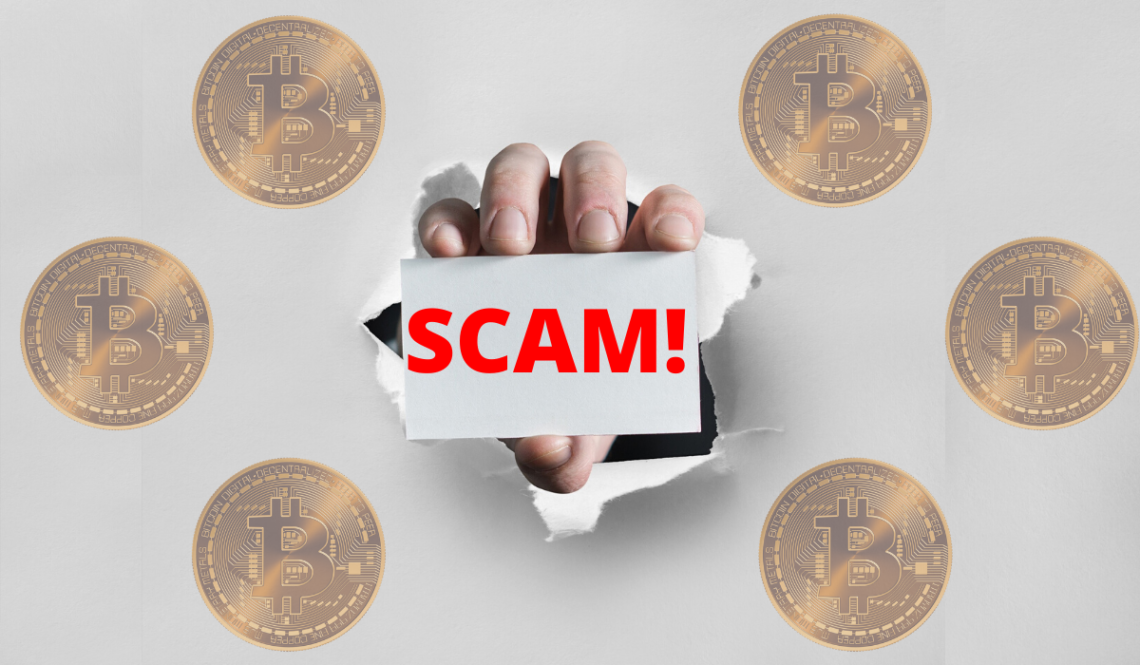- Bitcoin scams have grown from being very suspicious-looking advertisements deep on the internet to disguise themselves on the surface from being so genuine.
- Fake profiles are quite easy to spot on dating apps, and this one really stood out to be genuine.
- The scammer claimed to run a cosmetics business and also deal in Bitcoin investments on the side to make some money.
Cryptocurrency and Bitcoin scams have grown from being very suspicious-looking advertisements deep on the internet to disguise themselves on the surface from being so genuine. It has become hard for most people to tell the difference at first. This is exactly that Moazzam Khan, a journalist at the Security Intelligence blog, seemed to experience as of recently.
Khan explains that his Bitcoin scam experience started on a dating app, of all places. One of the profiles was very legitimately built with a proper detailed description and geographical location. Fake profiles are quite easy to spot on dating apps, and this one really stood out to be genuine.
When matched with Khan, the person even called him, to add a layer of authenticity to their match. But soon, this “match” began sowing seeds of suspicion into Khan’s mind as the person began showing more and more interest in Khan and less genuine about the information that they had initially provided in their profile.
The person also claimed to hold an MBA and an investment expert. Khan decided to peek into what was going on and took an IP tracking service, disguised it as a real estate listing, and asked the individual if it was a good investment.
And sure enough, the fish fell for the bait as the individual showed their geographical location to be in Nigeria. It was now clear to Khan that the entire thing was a scam, but out of curiosity for understanding how far this went, he kept conversation with the individual. The scammer claimed to run a cosmetics business and also deal in Bitcoin investments on the side to make some money.
This sparked Khan’s interest at the mention of Bitcoin. Upon further conversation, the scammer began the usual cliche routine of Bitcoin scammers, and began talking about how they had made large sums of money in a short time and then backed that with numerous videos on the same.
When Khan further enquired on how to get into crypto investing, the scam revealed itself. The individual asked Khan to make Bitcoin investments on an exchange called “au2traders.com”.
Further investigation into the exchange website started revealing all the loose ends of the entire operation. The website was poorly built with fake links, grammatical errors in the text, lack of proper support listing, with simply an email address providing any contact with the company.
There wasn’t even mention the name of the company operating au2traders and also displayed a fake address in the footer. A quick domain search revealed that the website was built just over 50 days ago, but the owner couldn’t be identified due to a privacy protection service.
There were also testimonials from supposedly fake individuals on the website claiming how they had earned lots of money using the website. The images attached to these individuals turned out to be stock images, as revealed by a simple reverse Google search.
To make the last stride for insights, Khan went on to make an account on au2traders. He says that the site required an investment of $300 initially, and it can only be supposed that the initial investment and any further investment directly goes to the scammer, and the money is fully lost.
The “Terms and Conditions” page states that individuals may lose part of all of their funds when trading binary options. There were many other suspicious rules applied if one wanted to retrieve money from the exchange. The company also didn’t serve residents of the US or Canada but yet reported to be headquartered in the United States.
Experiences like Moazzam’s show that from extremely shady looking at the surface scams, Bitcoin fraud has come a long way with scammers putting more effort into making their offerings seem genuine to trap customers.
A person with Khan’s experience would be able to identify such a scam quickly, but there are many without who end up falling for such fraudulent activities. Governments from all around the world are clambering to understand cryptocurrencies and impose regulations on them to protect the investments of their citizens.
However, as this regulation sector is growing and countries take their time embracing cryptocurrencies, such scams will continue to prevail.
Steve Anderson is an Australian crypto enthusiast. He is a specialist in management and trading for over 5 years. Steve has worked as a crypto trader, he loves learning about decentralisation, understanding the true potential of the blockchain.


 Home
Home News
News










